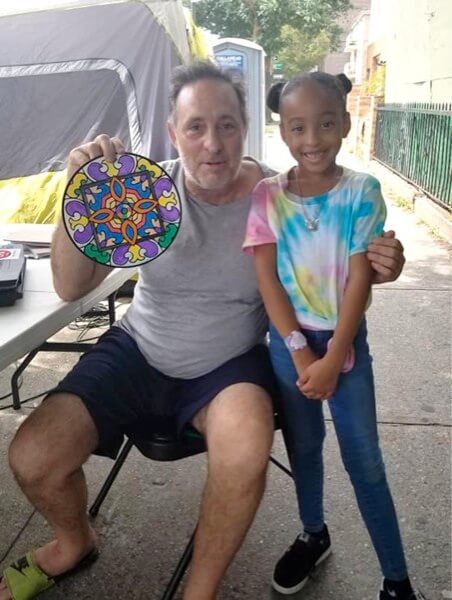By Mark Hallum
An Ozone Park civic leader took his opposition to homeless shelters to an unprecedented level recently with a hunger strike that lasted three weeks and ended in an ambulance ride.
Sam Esposito, president of the Ozone Park Residents Block Association, pitched a tent in front of the soon-to-be-shelter, located at 85-15 101st Ave. Aug. 5 and went to the hospital citing pain around his heart.
“Actually, it was a rewarding experience. I got to meet a lot of nice people, the neighborhood came out. Every day and night people were stopping by until 2 or 3 in the morning,” Esposito said in a phone call from a hospital bed Monday. “If this did anything, it brought the community closer. It also gave them hope that somebody is fighting for them.”
The city Department of Homeless Services, in an outreach to the press regarding the Ozone Park shelter, invited TimesLedger Newspapers to tour a facility in Prospect Heights similar to the one destined for Ozone Park.
Although the Brooklyn shelter is for single women, a DHS spokesman said the setup would be similar.
Medical attention is available twice a week to the clients and mental health personnel are on site most days. The people utilizing shelter resources move on to supporter housing within about seven months and their bed is guaranteed based on their compliance with guidelines for conduct and curfew.
Two women at the Brooklyn shelter, one of whom has a history of physical abuse and battles substance addiction, said the services provided at the facility have put them back on the road to being productive and independent.
Much like the Prospect Heights facility, the Ozone Park home will blend in with the neighborhood with residents checking in and out at the door, according to DHS.
Temporary shelter conversions from hotels have been the source of contention between the de Blasio administration and residents in Queens since the homeless crisis, with population estimates ranging between 60,000 and 70,000 in the city, came to the forefront of public awareness.
Esposito claimed his community is more than willing to accept their share of the burden of Mayor Bill de Blasio’s Turning the Tide on Homelessness initiative, which is designed to address the homeless crisis by placing a shelter in every community board district.
Neighborhood residents requested that DHS use the facility to house single women or homeless veterans before single men with mental health issues, according to Esposito.
They feared for the safety of children in three nearby schools, Esposito said.
“Physically, I’m a very strong person and I’m very strong-headed, so I just put it in my head that that’s what I was going to do,” Esposito continued. “The last meal I had was on Aug. 5, and moved in [front of the shelter] Aug. 6, and decided I wasn’t going to move until–well, until. And I guess today was until.”
Esposito said the police respected his protest, allowing him to stay in his encampment as long as he did not block the workers who were preparing the building to accommodate over 100 single men with mental health issues.
Reach reporter Mark Hallum by e-mail at mhall




































